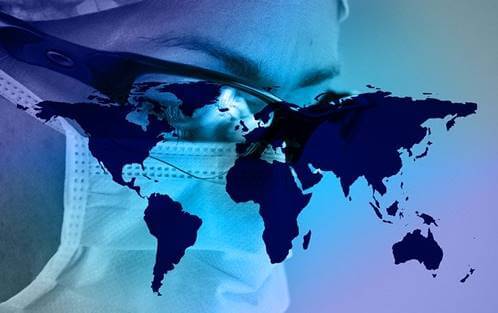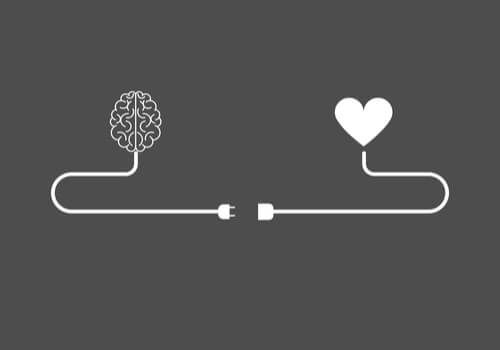Protect Your Mental Health Against the Coronavirus


Written and verified by the psychologist Valeria Sabater
No one had prepared us for such a situation. COVID-19 is changing our lifestyle in a way no-one could have ever foreseen. Quarantines, confinement, uncertainty, fear of contagion, economic crisis… We all need to manage many factors but there’s one factor you really shouldn’t neglect: your mental health. So how can you protect your mental health against the coronavirus?
From the field of psychology, we’re seeing concerning phenomena and behavior patterns. On one hand, we’re sensitive to all the people who, long before the pandemic, already had a very complex mental situation (depressions, phobias, addictions, generalized anxiety, eating disorders…).
Their problems are being clearly intensified in the current climate. We need to be very much aware of them, be in contact with them, and help them remotely.
Another factor that we’ve noticed, which is by no means less serious, is the anxiety, fear, panic buying, and all the other effects that forced confinement may have. We don’t know how long this situation is going to last. Thus, it’s essential for us to be prepared to provide adequate psychological strategies.
Nevertheless, and in spite of the complexity of the situation, there’s an undeniable fact. Human beings are capable of great things. We’re very capable beings when it comes to facing small and big challenges. By acting calmly, supporting each other, and creating appropriate bonds and global commitments, we’ll face this situation successfully.

How can we protect our mental health against the coronavirus?
Dr. Irvin David Yalom is a professor of psychiatry at Stanford University and a psychotherapist. In his book Existential Psychotherapy, he explains that, in a collective way, human beings are basically afraid of four things.
The first is losing control over their reality, the second is the fear of being alone, the third is doubting oneself and one’s purpose, and the fourth and last is the fear of death.
The presence of COVID-19 is generating all these sensations in a very real way. People are sure that they’re losing control over their reality. Life’s routines have changed. We’re urged not to leave the house and this creates a feeling of isolation and loneliness.
Little by little, if this period is extended, your mind can start to wonder what all of this means and even start to question the meaning of your own life.
All this can put you to the test psychologically and you need to be prepared. Protecting your mental health is as important as dealing with the virus. It’s essential that you take all these factors into account.
Mastering fear so that it doesn’t paralyze you – your first priority
To protect your mental health from the effects of the coronavirus threat, your first warhorse is controlling fear. It’s not a question of making it disappear, because that’s impossible and illogical. As an emotion, it has a job to do.
It’s just a matter of rationalizing it and of preventing it from having disastrous consequences and leading you to completely panic.
How to handle fear
Fear controls you through the information you see and read. You need to avoid being on the receiving end of images and information 24 hours a day. It’s just a matter of keeping up to date, consulting reliable sources, and then moving on with your life.
Use your social networks sparingly. Silencing notifications for a few hours is a healthy piece of advice in order to avoid infoxication (excess information that feeds fear and panic).
Fearing infection is quite normal and even necessary, but always within limits. And why is fear necessary? Because it encourages you to adopt healthy behavior patterns and attitudes to protect yourself, such as hand washing, isolation, and social distancing. You must react in a rational way that will protect you and others.
Share your emotions and concerns with your own family and friends. Talk to them on the phone in order to reduce the sensation of panic.

Calm your body to calm your mind
The body is like a fear sensor. It’s like a map where all your emotions are drawn and interconnected. It transforms all your concern into pain, tension, and exhaustion.
To protect your mental health from the coronavirus, you must also look after your body and help it calm and balanced, thus increasing your well-being.
How can I take care of my body in order to calm my mind?
One of the first things you’ll often neglect in situations of stress is looking after yourself. In the current situation, it’s essential that you follow these recommendations:
- Eat a varied and balanced diet.
- Be well hydrated.
- Sleep eight hours a day.
- Exercise at home (you can climb stairs, do push-ups, or dance).
- Practice meditation and yoga.
- Exercises such as Jacobson’s relaxation technique are excellent in today’s context.
Emotional nutrition – a key to protecting your mental health
We don’t know how long the COVID-19 crisis will last. Thus, in a situation like this, you must learn to be at home, live together, tolerate frustration, and manage uncertainty. In fact, each one of us is going to have to look for daily management strategies in order to relieve and defeat these factors.
However, emotional nutrition is a tool will always help and strengthen you. So what does it consist of?
How to work on emotional nutrition
- To protect your mental health, you need the support of those around you.
- You must actively encourage a range of positive behavior patterns and attitudes.
- Offer hope, support, and positivity to those who are afraid or have negative thoughts.
- We’re all going through the same thing. Thus, we should support each order.
- Always give the best of yourself.
It’s time to get closer to others, even from a distance. Call, send messages, and actively care for the people around you. Do this for those you love, your acquaintances, and your neighbors. Also, we need to create support networks.

To conclude, mental health is a pillar of our lives that we should care for in this present situation. Don’t neglect those who were already suffering before the arrival of COVID-19. Don’t forget to attend to your own needs as well and don’t hesitate to ask for expert help if you need it.
Many professionals are still working remotely and can provide you with therapy to help you get through this crisis.
Protect, take care of, and make yourself immune to the virus of panic and loneliness.
All cited sources were thoroughly reviewed by our team to ensure their quality, reliability, currency, and validity. The bibliography of this article was considered reliable and of academic or scientific accuracy.
- Yalom, I. (1980). Existential psychotherapy. New York, NY: Basic Books.
This text is provided for informational purposes only and does not replace consultation with a professional. If in doubt, consult your specialist.








